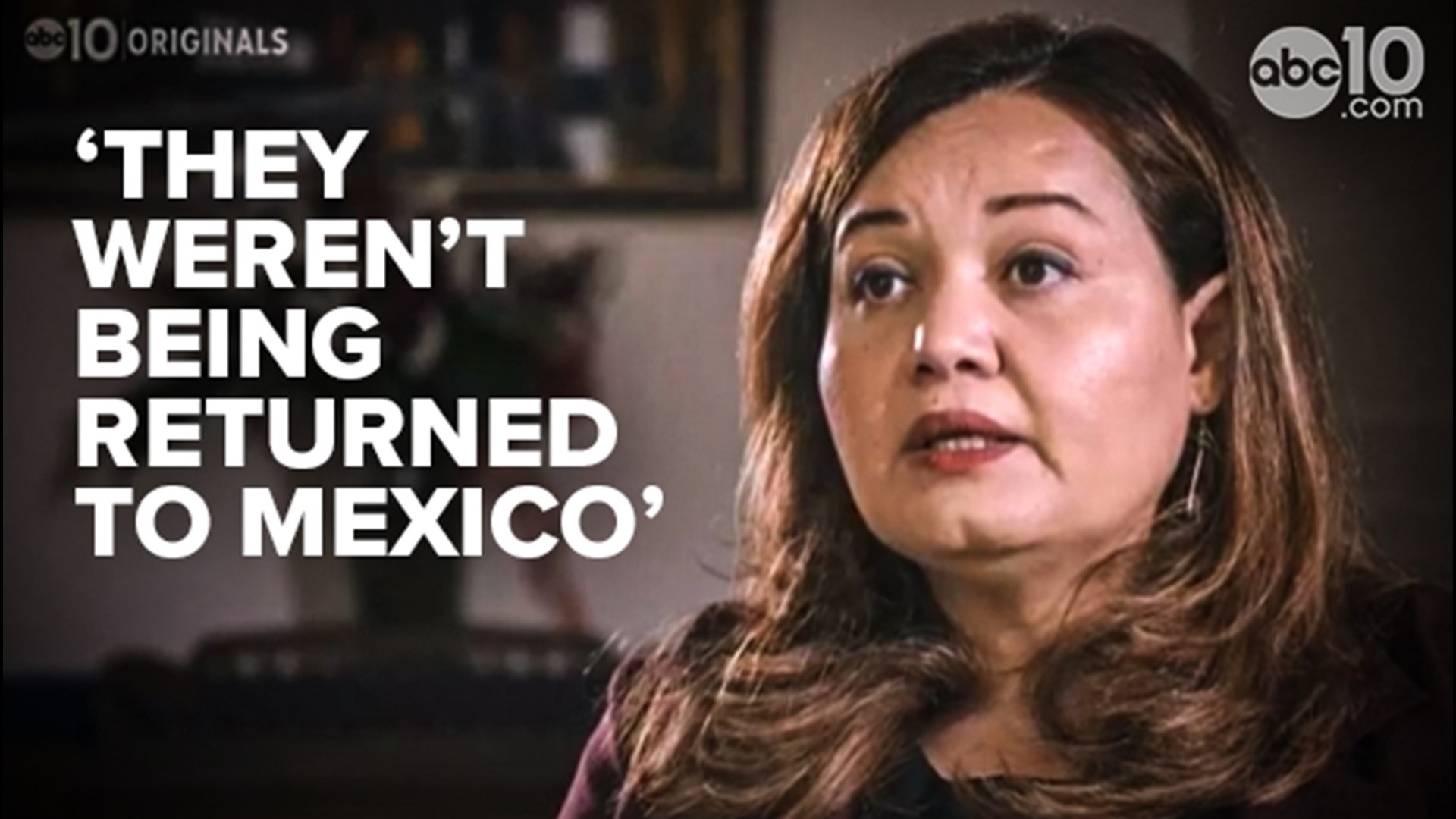SACRAMENTO, Calif. —
On June 15, 2012, undocumented students celebrated a victory that would change the course of their lives. The Obama administration announced the Deferred Action for Childhood Arrivals (DACA) program, which would allow more than 800,000 undocumented immigrants to establish roots in the U.S. through work permits and protections against deportation.
Salvador Sotelo Jimenez, a longtime Stockton resident, always thought he was going to be a farm worker because of his immigration status.
"I thought that was basically the only path for me,” Jimenez said.
He was born in Guerrero, Mexico but doesn’t have any memories of his time there.
“I was brought to the United States when I was only one years old so that will be around 1996,” Jimenez said.
Before 2012, he said opportunities were limited for undocumented immigrants like himself. That changed once his family told him about the newly established DACA program.
“Right away, I applied for it,” Jimenez said.
Through the program, he was able to get a social security number, a work permit and a driver’s license. Jimenez has been a recipient since its inception.
Now, he’s pursuing higher education, has a well-paying job with Amazon and is helping support his family. However, uncertainty looms for Jimenez and thousands of other DACA recipients.
The fate of the program is under threat yet again.
“As to how I'm feeling right now, it's just, you know, same as always just that (feeling of limbo), because it's not always guaranteed,” Jimenez said.
Last July, a Texas federal judge declared the Deferred Action for Childhood Arrivals program unlawful, prohibiting the government from approving any new applications. The Biden administration challenged the Texas ruling shortly after and it is on its way to the Fifth Circuit Court of Appeals for oral arguments on the case.
Even with the program, many undocumented immigrants are still left behind. The program outlines that eligible young people had to have arrived in the country before June 15, 2007, excluding others who have already established their lives in the U.S. for more than a decade. It also currently doesn’t provide a pathway to citizenship.
“Many of them have been here as children...and want to participate in all the processes and all the opportunities this government or country provides, and it’s very disappointing for many of them to not be able to participate in terms of voting and things like that,” said Jose Rodriguez, the president and CEO of the nonprofit El Concilio.
Rodriguez said he wants to see a permanent solution in the future that will guarantee protections for all immigrants.
“We need to figure out a way to make sure this legislation gets enacted in a way that’s not subject to executive orders by new administrations or left to the decision of the Supreme Court,” Rodriguez said. “And as far as I’m concerned, any child that was brought here by their parents at a young age, regardless of what time period that was, should be able to get this kind of relief.”
He’s still hopeful that change will come, but he believes it won’t happen without civic engagement.
“That’s why voting is so important. We continue to do advocacy work to make sure people who are elected are sensitive to the needs of DACA students, sensitive to the needs of immigration reform,” Rodriguez said. “While we have a long way to go, it starts with us participating in the elections. All hope is not gone.”
Today, Jimenez still considers his life a blessing thanks to the DACA program. With the experiences he’s gathered, he’s now paying it forward by helping others in his community as a canvasser at El Concilio.
“I go door to door (and) hand out flyers, talk to people on the street, let them know (about) programs for COVID-19,” Jimenez said. “It’s an eye-opener to work for El Concilio because it was...it feels like I can help other people.”
For those who need help, El Concilio provides immigration services, such as citizenship classes, translations, visa processing and individual and family consultations. It also has immigration attorneys who can offer additional legal services. You can learn more about El Concilio and how to reach out for help HERE.
WATCH ALSO:
How a promise during a desperate time changed the Tokuno Family's life | To The Point

